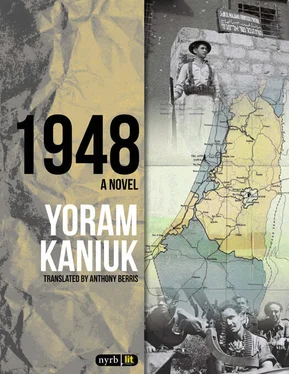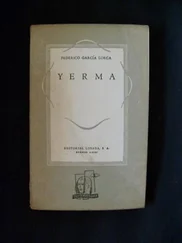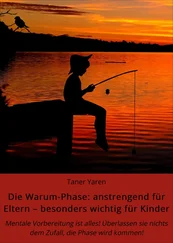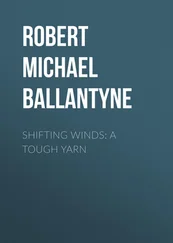Grenades were thrown. We came under fire from three-inch mortars and I saw a line of fire above me. Yelling came from above. I stood mesmerized by the half-naked woman. I still had the ammunition Shklar had given me, and again I was called to come up, Benny Marshak took a bullet in his jaw and somebody laughed and said that now Benny wouldn’t be able to shout, with the plaster stuck over his mouth, and after he said that he too took a bullet and fell dead. I kept on firing like crazy. I don’t know at whom. I only remember the direction. I went back down to the nun. Her pudendum was clear to see. Since then it’s been hard to look at pudenda even though I’ve had need of them. I drew her dress over her body. I was hit in the arm by a bullet and Shklar tossed me an iodine-soaked rag with which I dabbed at the wound, and the dead nun, if she was indeed a nun, was dressed again, and I closed her eyes and mouth. It was difficult, her mouth didn’t want to close and I had to push, and Dado said to Raful that we had no chance of survival but we’d fight to the end.
I heard, I don’t remember how, that they’d placed explosives on the floors of the rooms to blow up the badly wounded if we were forced to withdraw, because we couldn’t evacuate them. In a big room the wounded lay sadly, silently, looking around, and it seemed they understood what was going to happen to them. One of them shouted something to me, perhaps he recognized me, and died. Another was bleeding into his own mouth. They each clutched a grenade so they wouldn’t be taken prisoner. Anybody not dead or wounded carried on firing. Raful yelled that they’re Iraqis, the ones with the field gun. Time passed. I don’t know where it went, but it was clear that we would be killed.
Then it was decided that we had to retreat. The pity of it, we just didn’t leave wounded behind. A thin spray of blood spattered me and I wasn’t sure if it was mine or Hanan’s, who I’d seen running and firing, climbing upward. Somebody dragged the nuns’ bodies to the rear, I don’t know where, the firing intensified and I ran out of ammunition, and nobody near me had any. We all felt we had no chance, that the Arabs were many and fought well, when suddenly, in the distance, we saw enemy vehicles moving out, perhaps to the Etzion Bloc that was fighting for its life. Someone yelled that the enemy’s retreating, and I looked through a small gate and saw them moving out, carrying their wounded, I saw their dead bodies sprawled on the rocks.
I think the sun rose, perhaps there was an easterly desert wind, perhaps not, I used my sleeve to press into my wound and the blood slowly stopped flowing, and Dado shouted, They’re retreating, give them everything you’ve got. One of the battalion’s platoons, along with a force from Jerusalem, managed to reach us bringing weapons and ammunition, and they’d brought water with them as well. Benny Marshak danced with rage because he couldn’t shout. The Jerusalem force treated the wounded in silence. Dado looked at the retreating enemy and said, We were eyeball to eyeball, and they blinked first. And it had happened that five minutes before our expected surrender, Ari-nom-de-plume had appeared and come over to me. He’d started to say something, I heard gunfire, and he fell dead. I kissed him on the mouth. He was the only man I’ve kissed in my whole life. We gathered our many dead in a corner on the roof. Afterward, perhaps an hour later, maybe more, it was all over.
We went down to the Katamon neighborhood and took it after a short battle. On the way back we saw the Jerusalemites looting as we walked through the city singing, and the residents who weren’t looting applauded us. The residents of Katamon with its splendid buildings had fled, leaving behind food on the tables and unmade beds. In one home there was a huge radio yelling in Arabic. Someone fired at it and killed it. The homes were of wealthy people. We’d never seen such magnificence. Gold. Huge mirrors. Gleaming kitchens, crystal chandeliers, and lots of food. Silver dishes. Bottles of drinks standing in ranks like soldiers. We ran from house to house. There were still a few fighters firing at us, and after a while, maybe hours, we fell asleep in the houses. It was quiet, and there were some who ate the food that had been cooked before our arrival. I couldn’t eat because I had the taste of Ari-nom-de-plume in my mouth, but I drank a bottle of water and slept.
An armored vehicle came along on which we loaded the bottles, mainly the big ones, containing champagne, and we reached someplace, maybe it was Kiryat Anavim, or perhaps somewhere else. We got undressed, all the ones that hadn’t been killed, and stood in line naked, and poured the champagne over one another. We were like soldiers who’d reached Paradise, pouring over one another a wonderful beverage which back then we didn’t know much about. I know today that we were the first soldiers in history to bathe in sparkling champagne instead of drinking it. I felt heavenly little ants crawling over me and we licked our bodies and then poured over ourselves a brown liquid with a pleasing bouquet, which we later learned was French cognac.
It was a real party, and we sang in hoarse voices, “Who’s that standing on my grave and doesn’t know how to behave,” with its idiotic ending, “With the fiftieth blow Katrina still hadn’t died, and with the fifty-first blow Katrina still hadn’t died.” We gulped and got drunk and afterward got dressed and took our dead and buried them.
At the graveside we sang “Ama’s got a cataract / Ama loves me madly / I sit with him upon the rocks / And hope it does end badly,” and Benny didn’t like it — he removed the bandage from his jaw and yelled, Sing something else, and wanted to know why we disrespected the great moments, the birth of the Jewish nation, for now all of Jewish Jerusalem would be unified and be ours until the end of time. Back then we didn’t know the equivalent of the end of time.
A few days later we went somewhere whose name I no longer remember. Benny shouted that we’re going to conquer Ramallah, which had the best radio station in the country, but we didn’t conquer it because we couldn’t. The enemy fought well, and our Fifth Battalion, which fought at Sheikh Jarrah* on the road to Ramallah, didn’t manage to take the neighborhood, and Davidka mortar shells killed two of our guys, two unfortunates who were manning the mortar as it blew up in their faces. That night it rained and pools of water formed that gleamed in the morning sun. In one of the villages somebody found some chocolate and we ate it. Someone said he’d seen a Piper, which was carrying explosive pipes whose fuse was lit with a match and dropped on a group of Arab fighters. They made a lot of noise and scared the Arabs, but the damage was minimal.
Maybe thirty years later, Dado called to invite me to a swearing-in ceremony for recruits on Masada. I asked why me, and he said he’d invited several poets, but I was special because he remembered me from Saint Simeon’s. I asked him what he remembered and he said there’d been a moment when I’d fired and saved his life. I didn’t remember it, but of course I went, and we met at the Sdeh Dov airfield. Dado welcomed me, and with two other officers we boarded a helicopter, and I told him that Itzik Manger had written that when the last of the Gypsy kings died, ten thousand violinists had played in his memory — and on seeing his amazed expression I added that Manger had probably meant to say that ten thousand Jewish kings had played in memory of one Gypsy violinist.
I was pretty scared in the helicopter because the pilot, who had some very senior officers on board, stunned us with his aerobatics. He flew into wadis then climbed, and I was shaking, and the officer sitting next to me shouted — because it’s noisy in a helicopter and you’ve got to shout to be heard — that the helicopter is an extremely safe aircraft. His name was Talik — Yisrael Tal. At the ceremony I went to sit where I’d stood before the war, when I’d seen the lights of Paradise. Talik came over and sat next to me and said he wanted to talk to me about Leibniz. I looked at him. We sat on the cliff edge and talked about Leibniz and Spinoza for a long time. It was a time of grace. Behind us the recruits were sworn in, soldiers who would die in the wars to come, and somebody sang a silly song. We sat on the Masada cliff edge facing the desert where you could still see God, even if He wasn’t there and even if it was impossible to believe in Him even if I’d shoot Him, were He to exist. In the vastness of the dark it seemed that He was still there, continuing to create the world, crumpling mountains, slicing hills, painting yellow mountains in red. Since that evening I’ve loved Talik, the man who would replace Dado as commander of the Armored Corps and become the father of the Merkava tank.
Читать дальше












